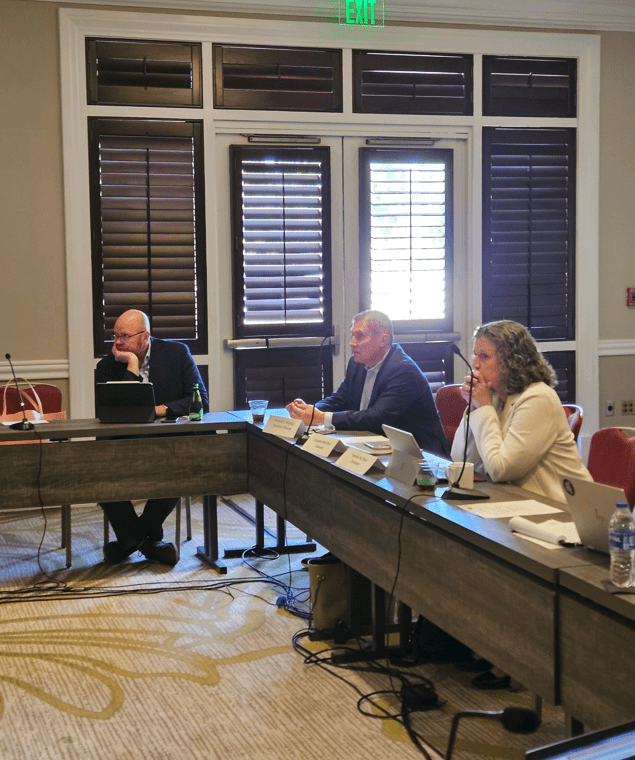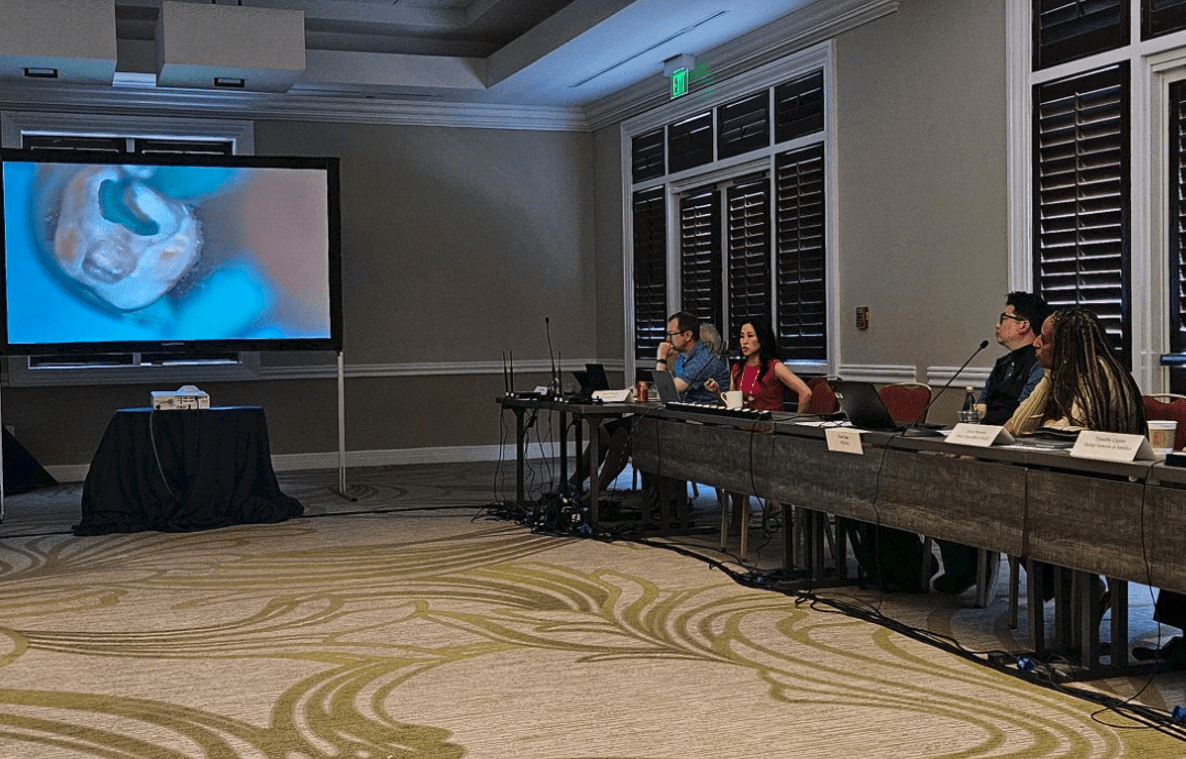AAE Advocates for Fair Reimbursement at Biannual Dental Insurance Directors Meeting
Last month, AAE President Natasha Flake, DDS, PhD, MSD; Treasurer Elizabeth Perry, DMD; and staff represented the specialty at the American Association of Dental Consultants (AADC) Spring Workshop and Annual Meeting. Their participation aimed to keep the AAE updated on the latest dental insurance coverage policies and to advocate for fair reimbursement for endodontic practices.
The five-day forum commenced with a private meeting between AAE leadership and 16 dental directors from national insurance carriers. This meeting focused on discussing AAE coverage priorities and addressing billing issues. AAE representatives emphasized the need for increased coverage for endodontic treatments, including surgical resorption repair, vital pulp therapy, cone-beam computed tomography (CBCT), and the use of orifice barriers. They highlighted that complex cases yield better outcomes when performed by trained endodontists rather than general dentists, underscoring the importance of recognizing specialty care in coverage decisions. Additionally, the AAE stressed the need to streamline the claims review process, making it easier for endodontists and their staff to submit claims and appeal, especially with the growing use of augmented intelligence (AI) systems.
The dental directors expressed their goal of increasing endodontist participation in state Medicaid programs and commercial payer networks to address provider shortages. The AAE expressed a willingness to collaborate on strengthening network adequacy, but also emphasized that fair market reimbursement is essential to encourage meaningful participation by dentists.
Following the AAE and Dental Directors Meeting, staff participated in the four-day AADB Annual Meeting where they heard directly from dental consultants about updates in the dental insurance industry, addressing dental claim policies and insurance network issues. One of the key presentations was on dental loss ratio legislation. While the dental consultants argued that such laws would decrease networks and raise patients’ premiums, the AAE maintained its stance of supporting these legislative proposals to improve patients’ access to dental care as done in Massachusetts. Another significant topic was the responsible use of AI in reviewing dental claims, with presenters noting that while AI can expedite approvals, consultants must still provide clinical judgment for claim denials in accordance with state dental practice laws.
The Annual Meeting also featured three claim review sessions where dental consultants evaluated complex insurance claims to illustrate best practices in determinations. A major takeaway was the encouragement for clearer radiographs and thorough case documentation by dental offices to avoid initial denials and the appeals process.
The AAE will continue to engage with dental directors and consultants to improve the insurance billing process for its members. Alongside its ongoing participation in AADB activities, AAE members, Ken Wiltbank, DMD; Elizabeth Perry, DDS; and Beth Damas, DDS, MS, advocate for coding updates and reforms through the ADA Code Maintenance Committee, aiming to enhance claims processing for endodontic practices.






